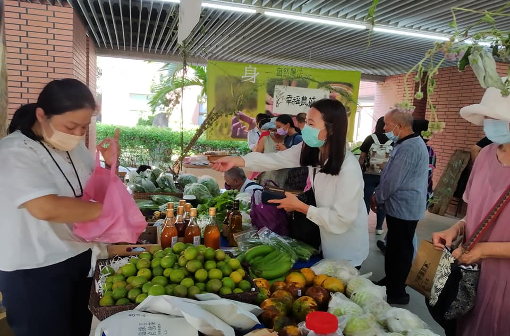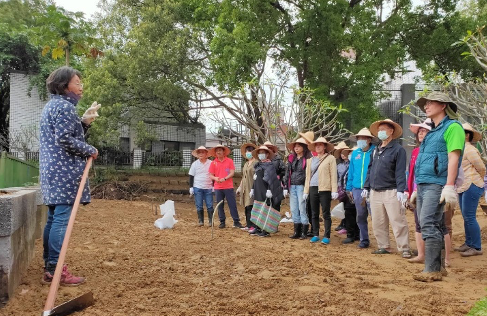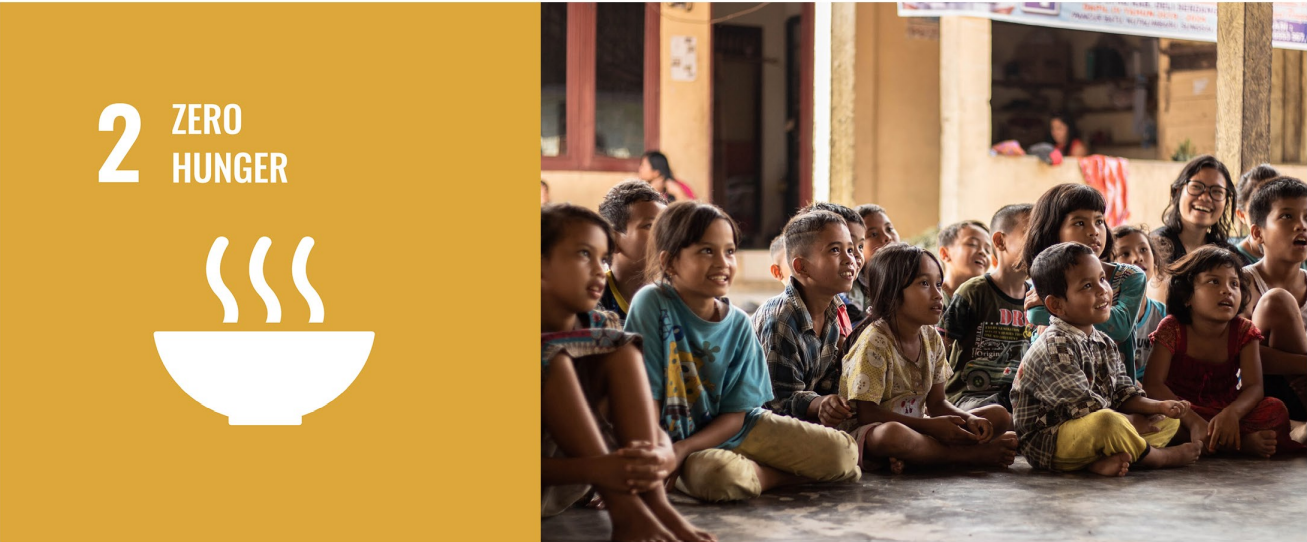
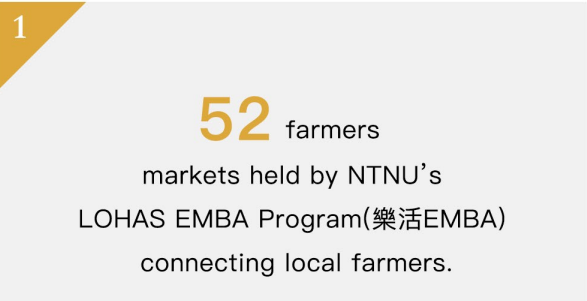
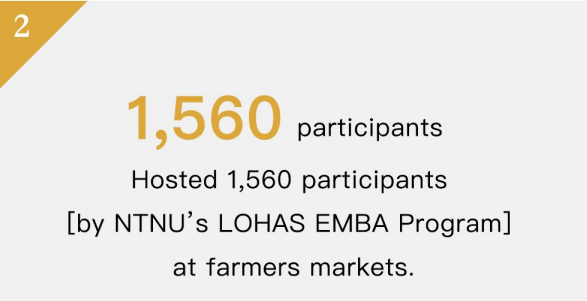
2.1 Spirit of the SDG and the University’s Philosophy
There are currently around 800 million undernourished people in the world, and this is expected to increase to 2 billion by 2050. The vast majority of people suffering from hunger live in developing countries, in which 12.9% of the populace are undernourished. Through promoting sustainable agriculture and food safety, the UN is trying to achieve hunger eradication,an important outcome of SDG 2. To eliminate hunger, higher education institutions should start by reducing food waste on campuses and providing food and beverage services that promote sustainable and affordable diets. At the same time, they can participate in education and research related to sustainable food and agriculture.
NTNU puts SDG 2 ( “Zero Hunger”) into practice in several aspects. In terms of overall institutional governance, NTNU implements on-campus food-waste surveys and tracking, protects the dietary health and hygiene of the university’s faculty and students, and provides choices that are in line with the concept of sustainability. At the same time, it extends food safety from the campus to the community, connecting local farmers with food producers in the community to establish a user-friendly sales system, and to promote and implement agricultural safety knowledge and exchange markets. At the national level, the University provides education about national food and farming, promotes correct knowledge and actions related to food security and sustainable agriculture through education, and contributes to the global actions aimed at ending hunger.
2.2 Achievements
Helping disadvantaged students to settle down in life, and ending the hunger crisis
The University cares for disadvantaged students. In order to help economically and culturally disadvantaged students to participate in ending the hunger crisis and improve their quality of life, the University has set up a settlement plan, provided various scholarships, grants, and living stipends, and proactively asked for donations of specific funds for students from outside the University. In 2020, it subsidized 19,294 studentsto the tune of NT$ 207,663,848.
Implementing an on-campus food waste survey and tracking
The University has established an on-campus food waste recycling and tracking mechanism and performed surveys on the amount of food waste. In 2019, the average amount of food waste generated per person on the main campus was 4.53 kg. In 2020, as a result of the COVID-19 pandemic, students were required to study from home, and the amount of food waste reduced dramatically to an average of 1.24 kg per person.
Protecting the dietary health and hygiene of the University’s faculty and students
The University has established clear dietary-related management standards and a Dining Services Hygiene Coordination Committee. The Health Center of the Office of Student Affairs is responsible for the management of campus dietary hygiene. This center regularly tracks the safety and ingredients of the foodstuffs available in the on-campus cafeterias. In 2020, more than 95% of the ingredients in the on-campus cafeterias could be traced back to their sources and, as an example, 90% of the pork had been sourced from Taiwan locally. At the same time, the budget allocation has been increasingly optimized to strengthen the management and inspection of the ingredients. In 2020, the funding exceeded NT$ 1 million. In order to provide affordable and healthy dining options for the university’s faculty, other staff, and students, the notes section in the restaurants’ invitation to bid clearly stipulates that catering vendors need to provide high-quality and affordable light meals. In addition, they need to set up various links for on-campus food and beverage services on the university’s website, and to publicize information regarding vegetarian restaurants that are on or near the campus.
Committed to the promotion of nutrition and health care of the University’s faculty, other staff, and students
NTNU plans and operates health-promotion activities as well as provides nutrition-related hygiene education according to the needs of its faculty and students. In addition, a case management mechanism was developed to provide consulting services in areas such as personal health and nutrition. Moreover, a book called “Healthy Posture All Pass” was published to enhance the personal health-care skills and self-help health management abilities of faculty, other staff, and students. Since 2015, the University has each year won the Outstanding Performance award of the University’s School Health Promotion Program held by the Ministry of Education year. In 2020, health and nutrition consultation services (e.g., for anorexia and emotional distress) were provided to 38 students, and there were 443 lectures on smoking, posture, and infectious diseases. The number of faculty, other staff, and students participating reached 35,633.
Working with local farmers and schools at all levels to promote sustainable diets and agriculture
NTNU provides education on food and farming and associated activities. The courses include topics such as natural diets and agricultural methods, and the University cultivates Grow-a-field Program on campus to put sustainable agriculture into action. Moreover, the University connects and supports more than 50 farmers and food producers to establish a user-friendly sales system. There were 52 farmers markets held in 2020, involving 1,560 participants. At the same time, the University links up cross-functional cooperation and combines resources from all sectors of society to plan and implement a national “Health Promoting School Program” to coach county and city governments and also schools at all levels to implement educational interventions related to food safety, food and agriculture, and health promotion.
2.3 Featured Highlights
2.3.1 NTNU connects local farmers and schools at all levels to work together to promote sustainable diets and agriculture
The LOHAS EMBA Program of the University offers courses such as on natural diets and farming methods, and the University cultivates Grow-a-field Program on campus to put sustainable agriculture into action. Moreover, the University connects and supports more than 50 farmers and food producers to establish a user-friendly sales system. There were 52 farmers markets held in 2020, involving 1,560 participants. At the same time, the University links up cross-functional cooperation and combines resources from all sectors of society to plan and implement a national “Health Promoting School Program” to coach county and city governments and also schools at all levels to implement educational interventions related to food safety, food and agriculture, and health promotion.
Related Media Coverage
